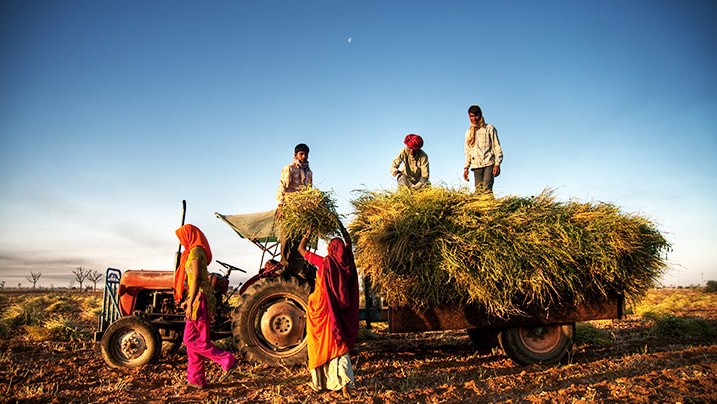CKYC Registry
-
Customer Service Contact us Service request Locate a branch
Find all the help you need
Scan the QR, get our app, and find help on your fingertips

Help CenterSupport topics, Contact us, FAQs and more
-
Login
Are you ready for an upgrade?
Login to the new experience with best features and services
-
Login
Are you ready for an upgrade?
Login to the new experience with best features and services
- Accounts
-
Deposits
IDFC FIRST Bank Deposits
View all Deposits -
Loans
IDFC FIRST Bank Loans
View all Loans - Wealth & Insure
-
Payments
IDFC FIRST Bank Payments
View all Payments -
Cards
IDFC FIRST Bank Cards
View all Cards - Blogs
- Corporate Account
-
Cash Management Services
IDFC FIRST Bank Cash Management Services
View all Cash Management Services - Supply Chain Finance
-
Corporate Lending
IDFC FIRST Bank Lending
View all -
Treasury
IDFC FIRST Bank Treasury
See more details - NBFC Financing
Support topics, Contact us, FAQs and more
- IDFC FIRST Bank Accounts
-
Savings Account
-
Corporate Salary
Account -
Senior Citizens
Savings Account -
First Power
Account -
Current Account
-
NRI Savings
Account -
TASC Institutional
Account -
Savings Account
Interest Calculator
- IDFC FIRST Bank Deposits
-
Fixed Deposit
-
Recurring Deposit
-
NRI Fixed Deposit
-
Safe Deposit Locker
-
FD Calculator
-
RD Calculator
- IDFC FIRST Bank Loans
-
Personal Loan
-
Consumer Durable
Loan -
Home Loan
-
Business Loan
-
Professional Loan
-
Education Loan
-
New Car Loan
-
Pre-owned Car Loan
-
Two Wheeler Loan
-
Pre-owned Two
Wheeler Loan -
Commercial Vehicle
Loan -
Gold Loan
-
Loan Against Property
-
Loan Against Securities
-
Easy Buy EMI card
-
Personal Loan
EMI Calculator -
Education Loan
EMI Calculator -
Home Loan
EMI Calculator -
EMI Calculator
-
Personal Loan Eligibility Calculator
- IDFC FIRST Bank Wealth & Insure
-
FIRST Select
-
FIRST Wealth
-
FIRST Private
-
Mutual Funds
-
Sovereign Gold Bond
-
Demat Account
-
Term Insurance
-
Life Insurance
-
Health Insurance
-
General Insurance
-
Bonds
-
Loan Against
Securities -
Portfolio Management
Service
- IDFC FIRST Bank Payments
-
FASTag
-
Credit Card
Bill Payments -
UPI
-
Funds Transfer
-
Forex Services
-
Pay Loan EMI
- IDFC FIRST Bank Cards
-
Ashva :
Metal Credit Card -
Mayura :
Metal Credit Card -
FIRST Millennia
Credit Card -
FIRST Classic
Credit Card -
FIRST Select
Credit Card -
FIRST Wealth
Credit Card -
FIRST WOW!
Credit Card -
Deals
-
Debit Cards
-
Co-branded Cards
-
Credit Card
EMI Calculator -
FIRST Corporate
Credit Card -
FIRST Purchase
Credit Card -
FIRST Business
Credit Card
- Premium Metal Credit Cards
-
AshvaLifestyle1% Forex₹2,999
-
MayuraLifestyleZero Forex₹5,999
-
FIRST PrivateInvite Only
- Best for travellers
-
MayuraZero ForexMetal₹5,999
-
Ashva1% ForexMetal₹2,999
-
FIRST WOW!Zero ForexTravelLifetime Free
-
FIRST SWYPTravel OffersEMI₹499
-
FIRST Select1.99% ForexLifestyleLifetime Free
-
FIRST Wealth1.5% ForexLifestyleLifetime Free
-
Club VistaraTravelLifestyle₹4,999
-
IndiGo IDFC FIRST Dual Credit CardTravelLifestyle₹4,999
- Max benefits, Free for life
-
FIRST Classic10X RewardsShoppingNever Expiring Rewards
-
FIRST Millennia10X RewardsShoppingNever Expiring Rewards
-
FIRST Select10X RewardsLifestyle1.99% Forex
-
FIRST Wealth10X RewardsLifestyle1.5% Forex
-
FIRST WOW!RewardsTravelZero Forex
-
LIC ClassicRewardsInsuranceShopping
-
LIC SelectRewardsInsuranceShopping
- Reward Multipliers
-
AshvaLifestyleMetal₹2,999
-
MayuraLifestyleZero Forex₹5,999
-
FIRST ClassicNever Expiring RewardsShoppingLifetime Free
-
FIRST MillenniaNever Expiring RewardsShoppingLifetime Free
-
FIRST SelectNever Expiring RewardsLifestyleLifetime Free
-
FIRST WealthNever Expiring RewardsLifestyleLifetime Free
- Rewards & Credit on UPI
-
FIRST Power+FuelUPI₹499
-
FIRST PowerFuelUPI₹199
-
FIRST EA₹NVirtual1% Cashback₹499
-
FIRST DigitalVirtualUPI₹199
-
IndiGo IDFC FIRST Dual Credit CardUPITravelDual cards
- Fuel and Savings
-
FIRST PowerRewardsUPI₹199
-
FIRST Power+RewardsUPI₹499
-
LIC ClassicRewardsInsuranceShopping
-
LIC SelectRewardsInsuranceShopping
- Express and Flaunt
-
AshvaMetal1% Forex₹2,999
-
MayuraMetalZero Forex₹5,999
-
FIRST SWYPEMIOfferMAX₹499
-
FIRST MillenniaRewardsShoppingLifetime Free
- FD Backed rewarding Credit Cards for all
-
FIRST EA₹NVirtualCashback₹499
-
FIRST WOW!Zero ForexTravelLifetime Free
-
CreditPro Balance TransferTransfer & SaveReduce InterestPay Smartly
- IDFC FIRST Bank NRI Forex Solutions
-
Send money to India-Wire transfer
-
Send money to India-Digitally
-
Send money abroad
-
Max Returns FD (INR)
- IDFC FIRST Bank MSME Accounts
-
Platinum Current
Account -
Gold
Current Account -
Silver Plus
Current Account -
Merchant Multiplier
Account -
Agri Multiplier
Account -
TASC Institutional
Account -
Dynamic Current
Account -
World business
Account -
First Startup
Current Account
- IDFC FIRST Bank Business Loans
-
Business Loan
-
Professional Loan
-
Loan Against Property
-
Business Loan for Women
-
Working Capital Loan
-
Construction Equipment Loan
-
Machinery Loan
-
Healthcare Equipment Loan
- IDFC FIRST Bank Business Solutions
-
Payment Solutions
-
Tax Payments
-
Doorstep Banking
-
Point of Sale (POS)
-
Escrow Accounts
-
NACH
-
Payment Gateway
-
UPI
-
Virtual Accounts
-
As per amendment in the Income Tax Rules, PAN or Aadhaar are to be mandatorily quoted for cash deposit or withdrawal aggregating to Rupees twenty lakhs or more in a FY. Please update your PAN or Aadhaar. Kindly reach out to the Bank’s contact center on 1800 10 888 or visit the nearest IDFC FIRST Bank branch for further queries.
-
-
Most Searched
Sorry!
We couldn’t find ‘’ in our website
Here is what you can do :
- Try checking the spelling and search
- Search from below suggestions instead
- Widen your search & try a more generic keyword
Suggested
Get a Credit Card
Enjoy Zero Charges on All Commonly Used Savings Account Services
Open Account Now
The COVID-19 pandemic has adversely affected almost all aspects of the global and national economy. However, it has also demonstrated the resilience of the agricultural sector which has admirably weathered the storm. In fact, seeing how impervious to ‘economic’ shock agriculture is, investing in it can actually improve the overall economy of the nation, and even, the globe.
India is the largest exporter of rice in the world and is responsible for feeding multiple nations. Thus, our agricultural sector must suffer no setback as that will have global, national, and geopolitical ramifications. This is not to say that the Indian farmer did not face multiple challenges during this pandemic. However, multiple government schemes, logistical priority, and innate resilience were enough to stand up to the challenge.
READ MORE
Challenges Faced by the Agriculture Sector
1. Seed Procurement: The 120 million smallholdings farmers responsible for 40% of grain and half of the fruits and vegetables produce were affected by the lockdown, as seed procurement for their crop was hampered. The issue was resolved through prompt management by government agencies and it incidentally had the unintended effect of ensuring many farmers went digital to avail of services offered.
2. Labour: Migrant labour is essential during harvest times and it was severely affected by the pandemic induced lockdown. Though it caused severe stress during the harvest, very little crop was wasted.
3. Price Fluctuation: Considering the disruption caused by the pandemic, there was a minor fluctuation in crop prices. However, this was greatly curtailed by multiple online portals for farers which enabled them to competitively price their products and find buyers.
Relief to farmers /Credit reforms to farmers
Indian farmers seek loans in both short and long term, but recent studies have shown that they opted for only short-term loans because they weren't confident about being able to repay the long term ones. Besides, while taking short term loans, the loan amount is not high (microfinance), but the interest rates are, especially when compared to long term loans. The current pandemic makes it difficult for farmers to repay even short term loans since the entire logistics structure of agricultural sector relies on was heavily curtailed. This resulted in the farmer not being able to earn on their crop, thereby having no capital to repay the loans.
The relief package granted by the government serves to address these issues. NABARD is going to issue credit worth INR 90,000 crores to small and medium farmers and INR 30,000 crores specifically for crop loan requirements. This will be all the more beneficial as the INR 30,000 crore credit will be doled out by regional rural banks and cooperative banks, thereby ensuring ease of dissemination.
The Kisan credit card facility has been authorised with 25 lakh new accounts with a loan limit of INR 25,000 to be made available to the farmers. In addition, the Pradhan Mantri Kisan Sammaan Nidhi (PM-KISAN) scheme is going to disperse a total of INR 2 lakh crore of credit and special low-interest rates to over 2.5 crore farmers including those into animal husbandry and fisheries. Considering that the majority of our farmers have small and medium-size farm holdings, these measures are also being actively supported by numerous cooperatives and private institutions.
Along with understanding the crucial role that agriculture still plays in the digital world, the current pandemic has highlighted how a robust agriculture sector and a sturdy logistics trail can act as a ‘hedge’ in a market beset with volatility. The Indian agriculture sector has been in the process of an overhaul, and the pandemic seems to have catalysed that effort, enabling farmers to procure loans easily and at affordable interest rates. It has also given a boost to sustainable agricultural practices while also ensuring healthy profitability.
Digitisation and Capitalisation is the way forward for the agricultural sector
Farmers have now been forced to digitise and the further capitalisation of the agriculture sector will ensure not a regional, but a global market for Indian farmers to sell their products in. This will, in turn, invigorate the agriculture manufacturing sector.
More importantly, farmers are now open to long term loans with the government covering long term credit with low-interest rates, payment flexibility and numerous other incentives to ensure the farmer feels secure. Long term credit is essential to overhaul the agriculture sector as it has the capital to dynamically change farming practices by the introduction of better seeds, more machinery as well as opening new markets for farmers.
The agriculture sector surprisingly proved resistant to market shocks as was elaborated by the recent COVID-19 pandemic. But, this is because of the indirect coupling agriculture has with economics in our country.
Providing long term credit to farmers will be critical in transforming the agriculture sector which has the potential of becoming the largest in the world to incrementally realise that potential. Banks like IDFC FIRST Bank are already understand the massive potential for growth in our agricultural sector. Thus, enabled by the hard work of the farmer and the long term loans procured from banks, crop rotation, sustainable farming, increasing the yield of cereals, and planting cash crops are now a reality for the Indian farmer. The only time farmers will take long term loans is when they feel secure enough considering the market and their support factors to do so. This, happily enough, is precisely what is happening today due to the generous loan schemes as well as the support provided to farmers by banks such as IDFC FIRST Bank. Farmers can also have second source of income by referring loans online through refer and earn money app.
Disclaimer
The contents of this article/infographic/picture/video are meant solely for information purposes. The contents are generic in nature and for informational purposes only. It is not a substitute for specific advice in your own circumstances. The information is subject to updation, completion, revision, verification and amendment and the same may change materially. The information is not intended for distribution or use by any person in any jurisdiction where such distribution or use would be contrary to law or regulation or would subject IDFC FIRST Bank or its affiliates to any licensing or registration requirements. IDFC FIRST Bank shall not be responsible for any direct/indirect loss or liability incurred by the reader for taking any financial decisions based on the contents and information mentioned. Please consult your financial advisor before making any financial decision.
The features, benefits and offers mentioned in the article are applicable as on the day of publication of this blog and is subject to change without notice. The contents herein are also subject to other product specific terms and conditions and any third party terms and conditions, as applicable. Please refer our website www.idfcfirstbank.com for latest updates.























